Faculty
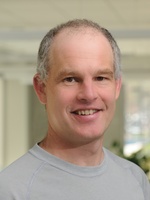
Paul Ammann
Associate Professor
I am an Associate Professor in the Software Engineering Group in the Department of Computer Science. My basic research interest might best be described as “Why do things go wrong and what can we do about it?” I earned an AB degree in Computer Science from Dartmouth College, and MS and PhD degrees in Computer Science from the University of Virginia.
I have enrolled in Mason’s retirement transition program. Hence, I am no longer accepting new research students at any level.

Brittany Johnson-Matthews
Assistant Professor
I am Dr. Brittany Johnson-Matthews, an Assistant Professor in the Department of Computer Science at George Mason University. You may also know me as my pen name, Brittany Johnson. I direct the INSPIRED (INterdisciplinary Software Practice Improvement REsearch and Development) Lab.
I received my Ph.D. in Computer Science from North Carolina State University (2017), after getting my B.A. in Computer Science from the College of Charleston (2011). I explore sociotechnical problems pertaining to developer productivity and software development/use, such as tool support, work environments, ethics, and software for social good. My research is interdisciplinary, cross-cutting with research in software engineering, human-computer interaction, and machine learning.
Outside of work, I enjoy doing anything that allows me to be creative. From painting on canvas to painting my nails, I love to express myself! I also have a passion for mentoring and encouraging others to reach for the stars (while never forgetting who you are or where you started).
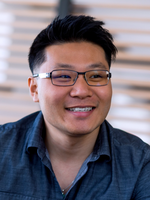
Wing Lam
Assistant Professor
I am an Assistant Professor at George Mason University. My research interests are in Software Engineering, with a focus on Software Testing and Analysis, Software Evolution, Software Dependability, and AI and Software Engineering.
Recent topics of mine aim to detect and fix flaky tests, test mobile apps, and improve chatbots (e.g., ChatGPT) and autonomous driving systems.
I obtained a PhD from the Department of Computer Science at the University of Illinois at Urbana-Champaign and a Bachelor’s in Computer Science with Distinction from the Department of Computer Science & Engineering at the University of Washington.
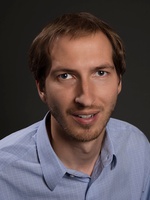
Thomas LaToza
Associate Professor
I study how humans interact with code and design new ways to build software. I work at the intersection of software engineering and human-computer interaction.
I use behavioral methods to study developers as users of their programming tools, understand what makes designing, implementing, and debugging software hard, and re-envision the relationship between developers and code. A key focus of my work has been designing new techniques to view and manipulate code. I have pioneered the design of crowdsourced programming environments, which reify developer’s design knowledge, strategies, and mental models in explicit forms which can be manipulated by program analysis tools and connected to code.
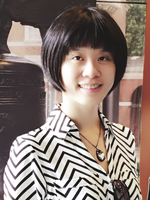
Lannan (Lisa) Luo
Associate Professor
I am an Assistant Professor in the Department of Computer Science at George Mason University. I received my PhD in the College of Information Sciences and Technology from Penn State University in August, 2017, working under the supervision of Dr. Peng Liu.
My research mainly focuses on software and systems security. My reserach interests include software analysis and verification, vulnerability analysis, malware analysis, programming languages, software engineering, and deep learning. My research approaches are mainly empirical in tandem with formal methods, combining symbolic execution, theorem proving, taint analysis, control flow analysis, and data flow analysis.

Andrian Marcus
Professor
A former Fulbright Scholar, born and raised in Romania, Andrian Marcus is now a Professor in the Department of Computer Science at George Mason University. He obtained his Ph.D. in Computer Science from Kent State University (US), with Jonathan Maletic as his advisor. He has prior degrees in Computer Science and European Studies from The University of Memphis (US) and Babeş-Bolyai University (Cluj-Napoca, Romania). In 2021 he was named Distinguished Alumnus of the Department of Mathematics and Computer Science at Babeş-Bolyai University.
His research interests are in software engineering, with focus on program understanding and software evolution. He is best known for his work on using text retrieval and analysis techniques on software corpora for supporting comprehension during software evolution, and he is the recipient of the NSF CAREER award
Professionally, he is most proud of his outstanding current and past doctoral students and finds mentoring to be the most rewarding part of the academic career. Over time, their joint research earned six Best/Distinguished Paper Awards and seven Most Influential Paper Awards at software engineering conferences.
His professional service includes serving on the Steering Committees of the IEEE International Conference on Software Maintenance and Evolution (ICSME) and of the IEEE Working Conference on Software Visualization (VISSOFT). He was the General Chair and the Program Co-chair of ICSME in 2011 and 2010, respectively, and Program Co-Chair for other conferences (ICPC’09, VISSOFT’13, SANER’17).
He currently serves on the editorial board of the Journal of Software: Evolution and Process. He has also served on the editorial board of the IEEE Transactions on Software Engineering (2014-2018) and the Empirical Software Engineering Journal (2010-2021).

Wes Masri
Professor (Teaching)
Teaching interests: software related subjects, namely, introductory and intermediate programming, data structures and algorithms, programming languages, software testing, and software engineering.
Research area: software engineering, with emphasis on software testing and dynamic program analysis, interest in devising effective, scalable, and practical quality enhancing techniques and tools to support software testing, fault localization, and software analysis. Strong interest in discovering and analyzing code patterns and program behaviors that affect the principal quality attributes of software systems, namely, reliability, safety, and security.

Daniel Menascé
University Professor Emeritus
Dr. Menasce is a University Professor Emeritus of Computer Science at George Mason University, a member of its Institute for Digital Innovation, and was Senior Associate Dean of its Volgenau School of Engineering from 2005 to 2012. He is a member of the Computer Networks and Systems Lab (CNSLab@Mason) and he was the founding co-Director of the E-center for E-Business, and the founding director of the MS in E-commerce program at George Mason University until August 2005. He received a Ph.D. degree in Computer Science from UCLA (1978), an MS in Computer Science, and a BSEE both from the Pontifical Catholic University in Rio de Janeiro (PUC-RIO), Brazil (1975 and 1974, respectively). He has held visiting faculty positions at UMIACS, University of Maryland, College Park (1991-1992) and at the University of Rome, Italy (1983). He was a full-time faculty member of the Department of Computer Science at PUC-RIO, Brazil for 14 years, where he was also chair of CS (’81-’83). Menasce was elevated to the rank of Fellow of the IEEE in 2014 for “contributions to research and education in performance evaluation of computer systems.” He was elected an ACM Fellow in 1997 “For fundamental contributions to education and practice of computer networks and performance evaluation, and material contributions to the establishment of a strong computing industry in Brazil.” He was elected a member of IFIP’s Working Group 7.3 in 1998 based on his “contributions and accomplishments in the field of performance evaluation.” The Computer Measurement Group (CMG) selected him as the recipient of the 2001 A. A. Michelson Award for “outstanding contributions to computer metrics.” In 2021 he received Mason’s David J. King Teaching Award for “significant, long-term contributions to the overall educational excellence of the university”. In 2017 he was selected among faculty of all disciplnes of all public and private colleges of Virginia as a recipient of the 2017 Outstanding Faculty Award by the State Council of Higher Education for Virginia (SCHEV). In 2009 he was inducted as an honorary member of the Golden Key International Honour Society. Menasce was one of the two co-founders and the director of the Hyperlearning Center.

ThanhVu (Vu) Nguyen
Assistant Professor
ThanhVu (Vu) Nguyen is an assistant professor in Computer Science at George Mason University. He completed his Ph.D. in Computer Science at the University of New Mexico-Albuquerque and a postdoc at the University of Maryland-College Park. Nguyen’s research lies at the intersection of Software Engineering and Formal Methods, focusing on safety of AI and soundness and complexity of programs. He is the recipient of the NSF CAREER Award, the NSF CRII Award, an Amazon Research Award, an ACM SIGSOFT ICSE 10-year Most Influential Paper Award, an ACM SIGEVO 10-year Impact Award, a Sigma Xi Award for Excellence in Research, the IFIP TC2 Manfred Paul Award for Excellence in Software: Theory and Practice, the ACM SIGEVO “Humies” Gold Medal Award, and a NASA Space Grant Graduate Fellowship.
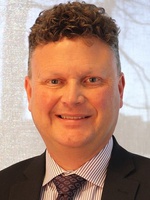
Robert Pettit
Professor of Practice and Associate Chair
After 30+ years in industry and nearly 20 years as an adjunct professor, I followed my passion for teaching and joined George Mason University’s Department of Computer Science full-time starting with the Fall 2021 semester. As a Professor of Practice, I leverage my industry experience while teaching courses in computer science and software engineering.
My research and practical interests include real-time embedded software; software modeling and design; model-based engineering; and software performance analysis; and mission assurance for critical software systems. As a Professor of Practice, I maintain these skills through consulting relationships primarily with The Aerospace Corporation, where I have spent the last 20+ years supporting mission assurance for spaceflight software. I also serve as the Steering Committee Co-Chair for IEEE’s International Symposium on Real-Time Computing (ISORC) and am an editor for the International Journal of Software and Systems Modeling (SoSyM).
Outside of work, I love spending time with my family, enjoying outdoor activities and traveling – particularly to Europe and any location with mountains.
I am also a USA Track & Field (USATF) Level 2 certified throwing coach. I have coached two high-school All American throwers in discus and shot put; multiple All State throwers; and the current Virginia boys’ record holder in the shot put.
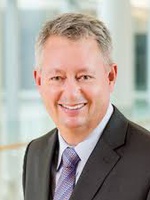
David Rosenblum
Planning Research Corporation Professor and Chair
Professor Rosenblum received his PhD in 1988 from Stanford University. From 1988 to 1996 he was a Member of the Technical Staff at AT&T Bell Laboratories (now AT&T Labs Research) in Murray Hill, New Jersey, and from 1996 to 2001 he was on the Faculty of the Department (now School) of Information and Computer Science at the University of California, Irvine. From 2001 to 2003 he was Chief Technology Officer and Principal Architect of PreCache, a startup company developing technology in the area of publish/subscribe networking. From 2004 to 2011 he was Professor of Software Systems in the Department of Computer Science at University College London. From 2011 to 2020 he was a Professor of Computer Science at the National University of Singapore, where he served as Dean of the NUS School of Computing from 2013 to 2016 and Director of the NUS-Singtel Cyber Security Research and Development Laboratory from 2016 to 2020.
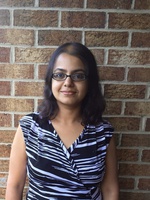
Shvetha Soundararajan
Associate Professor (Teaching)
I am a Term Assistant Professor in the Department of Computer Science at George Mason University. I graduated with a PhD in Computer Science from Virginia Tech in 2013. I am passionate about teaching and find it very rewarding. I am currently teaching CS 321: Software Engineering and CS 211: Object-Oriented Programming.
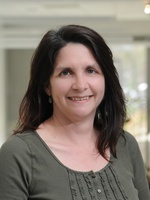
Elizabeth White
Associate Professor and Associate Chair
My research interests lie in the area of software engineering for large-scale distributed software systems. Currently, my research focus is in the area of Radio Frequency Identification (RFID). In particular, we are investigating novel computational roles that this technology can play in the emerging Internet of Things.
Other work has included: 1) dynamic reconfiguration and 2) software architecture, particularly as it related to control integration. Both of these research topics focus on software as viewed at the level of configuration (i.e. programming-in-the-large). In addition, I have worked on various other topics, including visualization software for teaching compiler theory and in application-level protocols for Distributed Interaction Simulations (DIS). The underlying theme of my work is the study of techniques and tools for reasoning about and automating complex processes.
Systems software, Compilers, Programming Languages, Mobile Devices
